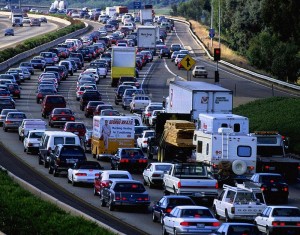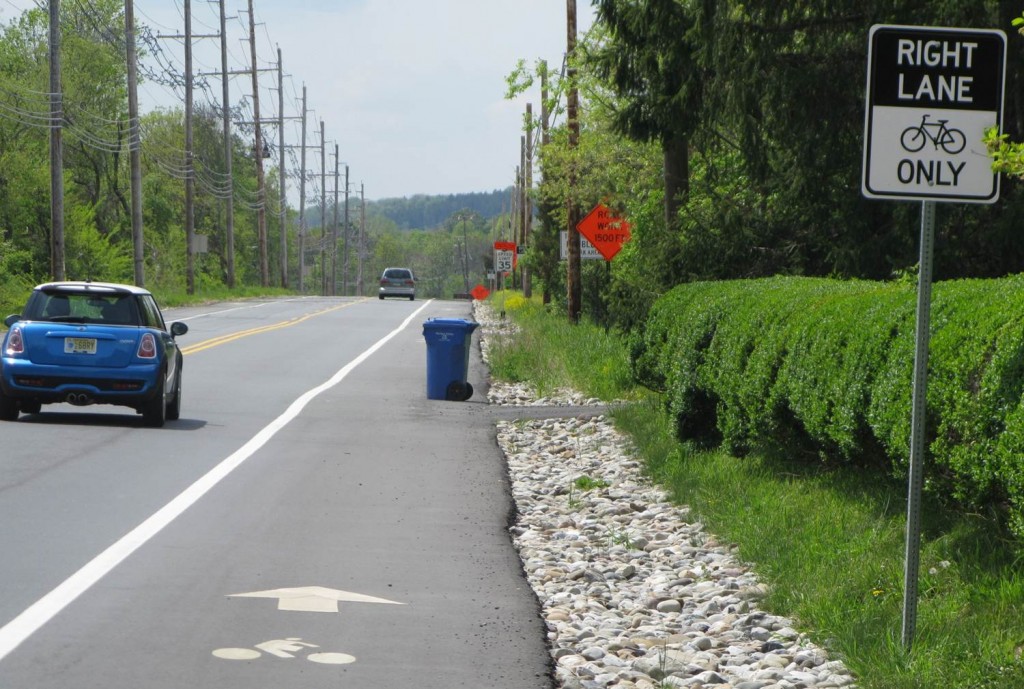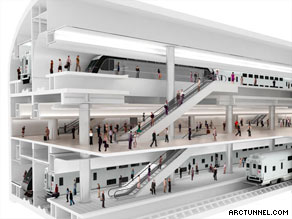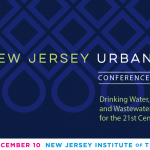New Jersey Future Blog
Does Traffic Congestion Make You More Productive?
June 1st, 2012 by Tim Evans
 Urban planning professor Eric Dumbaugh, writing on The Atlantic Cities website, notes the curious direct (rather than inverse) correlation between traffic congestion and regional per-capita GDP at the metropolitan level, and then, counterintuitively, appears to suggest that congestion is not an indicator of lost economic vitality.
Urban planning professor Eric Dumbaugh, writing on The Atlantic Cities website, notes the curious direct (rather than inverse) correlation between traffic congestion and regional per-capita GDP at the metropolitan level, and then, counterintuitively, appears to suggest that congestion is not an indicator of lost economic vitality.
The result may be surprising, but then again it may not. It might be true, all other things being equal, that “If … congestion is detrimental to a region’s economy, then one would expect that people living in areas with low levels of traffic congestion would be more economically productive, on a per capita basis, than those in areas with high levels of congestion.” But all other things are not equal – places with a lot of congestion are places where a lot of people want to be. And places where a lot of people want to be tend to produce what economists call agglomeration economies (pdf) – that is, these places become more productive on a per-capita basis.
This is a classic case of a “lurking” variable. Congestion and productivity are moving in tandem because of some other hidden variable not appearing in Dumbaugh’s graph. That is, rather than defining two sides of a causal relationship, they are in fact both better thought of as dependent variables – variables whose values depend on the value of an underlying input, or “explanatory” variable. In this case the input variable is a city or metro area’s value or desirability as a center of commerce and culture, something along the lines of what Richard Florida invokes with his “creative class” argument.
… places with a lot of congestion are places where a lot of people want to be.
One way to quantify this “desirability,” if you were trying to include it in a model, might be to factor in total population or population density – after all, places where a lot of people want to be tend to have a lot of people in them. In addition to producing the agglomeration economies beloved by economists, total population and population density also happen to be two major factors that influence traffic congestion.
To Dumbaugh’s credit, he recognizes this:
Such a finding seems counterintuitive on its surface. How could being stuck in traffic lead people to be more productive? The relationship is almost certainly not causal. Instead, regional GDP and traffic congestion are tied to a common moderating variable – the presence of a vibrant, economically-productive city. And as city economies grow, so too does the demand for travel.
He goes on to suggest that people adapt to congestion on their own through various behavior changes, so highway departments shouldn’t expend so much money trying to eliminate congestion. It’s a convincing argument and one that is consistent with the smart-growth position against increasing highway capacity as the only way of addressing congestion. But his implied conclusion, that we should just ignore congestion and it will eventually sort itself out via the aggregation of thousands of individual adaptive responses, is not the right approach either. Congestion DOES represent hours lost that could otherwise have been put to either productive or recreational use, so the issue is still worth addressing.
What is needed are different strategies for alleviating congestion – like putting more destinations near transit, or simply putting destinations closer together, so that people can accomplish more of their needed travel via transit, walking, biking, or shorter car trips on local streets, rather than heading out onto the regional road network for every trip they have to make. A shift toward more compact development may happen on its own over the very long term, purely through market forces and demographic changes, but that doesn’t mean public policy interventions can’t and shouldn’t help it along. It’s just that the policy intervention should consist of something other than widening roads.
















